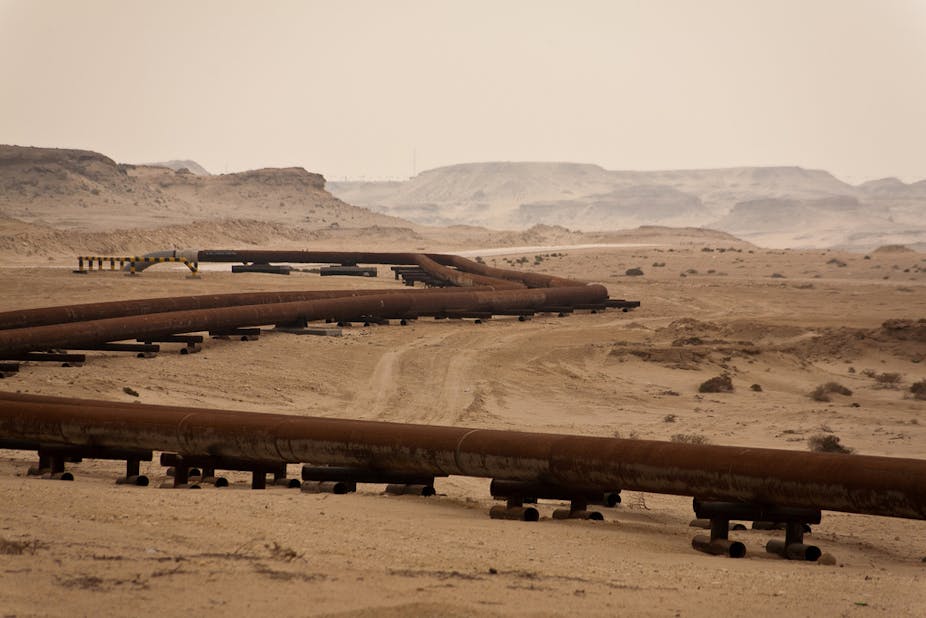Prospective US and UK military action in Syria has created jitters in the financial and commodities markets around the world. Stock markets have experienced significant losses, whereas commodities and bonds markets were seriously fluctuating during the week.
More specifically, The European stock markets suffered losses for a third consecutive trading day this week, whereas Dow Jones and NASDAQ showed a small recovery after a two day negative rally. Emerging stock markets dropped significantly as well.
The VIX index increased by more than 20% over the last two trading days, reaching its highest level since early July this year. It is often described as the “fear index,” as it reflects the market participants perception about the market’s future volatility - expectations of higher uncertainty lead to higher market volatility. Back in June, VIX increased significantly due to the fate of the FED’s quantitative easing programme.
Oil and gold prices soared this week reaching six-month and three-month highs, respectively. In terms of the exchange rates, we observed currencies such as the US dollar, Japanese Yen and Swiss France to show some gains, whereas currencies such as the Indian Rupee plummeted significantly. Finally, government bonds from the US, the UK and Germany, among others, jumped to higher levels over the last three days.
The uncertainty around Syria has generated diverse responses from the financial and commodities markets. Of course, it is not the first time that this has happened. During the Libya conflict, for example, oil prices surged to almost $118, whereas stock markets experienced significant losses. Similar behaviour was also observed during the second war in Iraq.
But what drives these patterns?
In order to answer this question we need first to understand how assets are valued. Any tradable asset price reflects the present value of all discounted future cash flows that this asset will generate during its life. To put it simply, future cash flows need to be discounted in order to be expressed in current prices. These cash flows would have the form of a monetary payment in the case of financial assets - for example, stocks pay dividends, bonds pay coupons, and so on.
However, the cash flows for non-financial assets, like commodities, are implicit. They correspond to the uncertainty about the future availability of the asset, or the future demand for it.
Any event that could alter the future cash flows of an asset, or its riskiness, will also cause a change in price. The observed price changes do not necessarily reflect changes in the fundamentals or riskiness of the asset, though. It could simply reflect the expectations of the market participants for the asset’s fundamentals or riskiness. With this in mind we are able to identify why such mixed responses are observed.
Events such as the conflict in Syria raise concerns primarily for the oil industry. Despite the fact that Syria is not a major oil producer, uncertainty is high on the possibility that the effects from a military action will spill over to the wider Middle East region.
Hence, there are fears about the future availability of oil due to disruptions in its production: the Middle East produces about a third of the world’s oil. Negative prospects about the future cash flows of stocks and their riskiness have therefore been triggered. Investors divert their investments away from the stock markets to other assets, creating an excess supply of stocks and driving prices down. This explaines negative response from the stock markets over the past few days.
Expectations about the future cash flows from stocks and their riskiness are not the same for all countries. Thus the negative response is higher in emerging stock markets such as India or Turkey, and lower in mature stock markets such as the US or Europe.
Prices of different commodities are not increasing for the same reasons. Gold and oil, for example, are where the highest price gains have been seen. Oil prices, on the one hand, are increasing purely on the grounds that a potential instability in the wider region creates uncertainty about the future availability of oil.
On the other hand, investors seek “safe havens” in which to place their funds. Gold is traditionally regarded as one of these “safe havens” during crises periods. Investors believe that gold is one of the safest assets, and thus they shift their money towards it. Such move creates excess demand for gold and drives prices into a higher territory.
Similarly, other “safe havens” are considered to be the currencies of the US, Japan and Switzerland, as well as certain government bonds like the US, the UK and the German bonds. This explains their positive returns in the last few days.
Considering that Russia is against any military action in Syria, and the UN Security Council’s permanent members failed to agree to a military action against Syria, it will be interesting to see how the asset markets will respond in the days to come.
In any case, Asian stock markets opened high today, possibly suggesting that jitters have eased… at least until the coming week.

